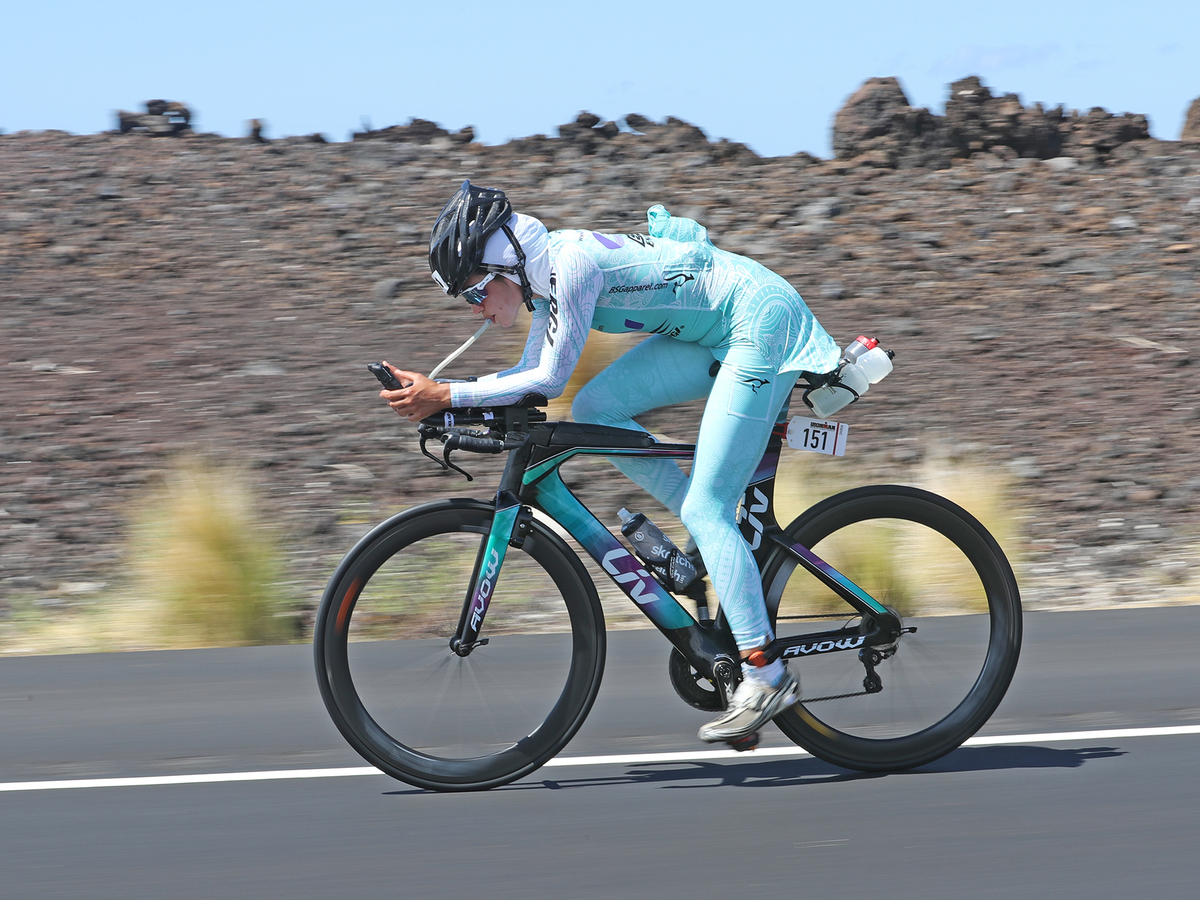Critics like to categorize Islamic dress (hijab or otherwise) as an obstacle, a hindrance or a barrier for women. Although this Iranian athlete doesn’t usually wear hijab, the scarf is actually what enabled her to represent Iran (and set an awesome precedent!) at the Ironman World Championships on October 8.
The requirement for female athletes to wear hijab in Iran caused major controversy just last week, when Chess champion Nazi Paikidze called for a boycott of the Women’s World Chess Championship in Iran. Here, we have an Iranian athlete doing exactly the opposite. Shirin Gerami put together code-compliant gear so she could run and represent Iran. And she did it, finishing the Ironman in 13 hours and 11 minutes.
What is most curious about these vastly different reactions to Iran’s requirements is how they compare to dress code regulations for athletes in America. Muslim girls have faced dress code issues for decades in the United States- whether when running track in high school or fighting the Professional basketball ban on hijab, like Bilqis Abdul-Qaadir.
Is this essentially the same thing, or vastly different? Share your thoughts below.

“Shirin Gerami, a 26-year-old woman, just became the first Iranian female triathlete to compete in and finish the 2016 Ironman world championship in Kona, Hawaii on October 8.
She swam 2.4 miles in choppy water, biked 112 miles, and ran 26.2 miles all while respecting the regulations her country enforces, requiring women to be covered at all times in public settings.
Before the race, Gerami told Sports Illustrated: “This will be the first time a female will be officially representing Iran in an Ironman. What was important to me was to create an opportunity where all women could access triathlons, to reap the psychological, physical and social benefits of sports—to swim, bike, run, immerse in nature and grow as a person. I believe what is most important is to have the opportunity”.
Gerami already transcended history in 2013, as Iran’s first female triathlete, following the International Triathlon Union World Championships in London.
Gerami prepares for the swimming leg of the Staffordshire triathlon, June 2016, England (Photo: FinisherPix)
By representing her country and respecting Islamic culture, Gerami agreed to respect the rules and regulations of Iran, which requires women to be covered in public settings.
“My hope is that by finding the right solution, the clothes would then provide an opportunity for more women to access sports,” Gerami says.”
Read more from RealIran.org
“Gerami, who is in her 20s, started doing triathlons as a hobby during her last year of college at Durham University in England. Then, one night, a friend suggested that she should represent Iran in the London triathlon.
“So I phoned them up and said I’m an Iranian, I live in London and would it be possible to represent?”
The Iran Triathlon Federation responded with a lot of “no’s.” Gerami said they told her that because of “sensitivities,” they don’t support women in triathlons.
“I responded saying, ‘The main reason that you’re telling me that women can’t represent Iran in triathlons is because of clothes. So allow me to go find clothes and find a solution,'” she says.

The final design for Gerami’s triathlon garb, which she wore during the Ironman event in Hawaii. (Courtesy Chris McDonald)
Gerami doesn’t usually wear a hijab. But she decided to make it her mission to find athletic wear that would meet Iran’s standards so that more women can represent her birth country in international triathlons.”
Read more at NPR.org.
[separator type=”thin”]
(Photo Credit: Tony Svensson/Ironman)





